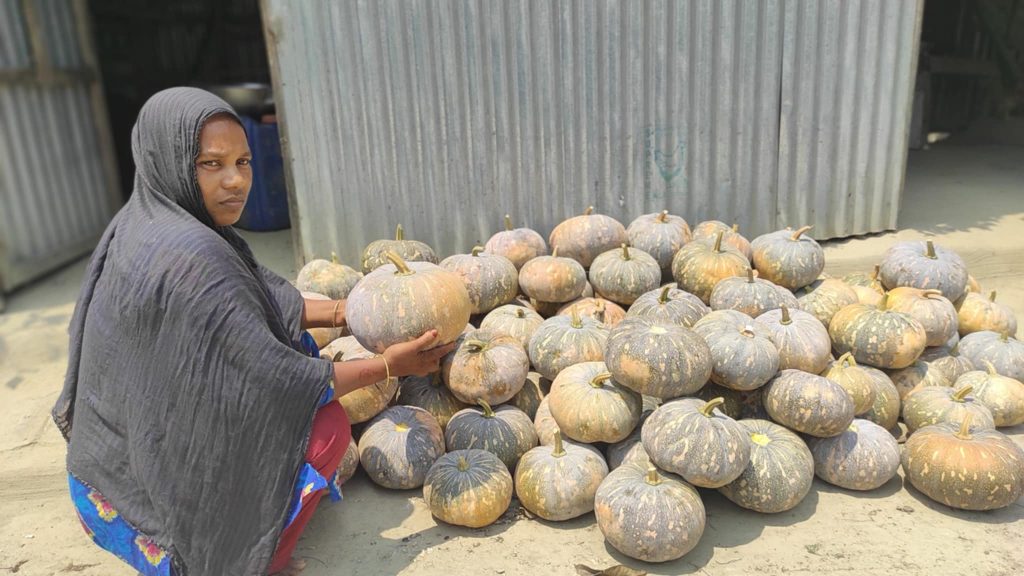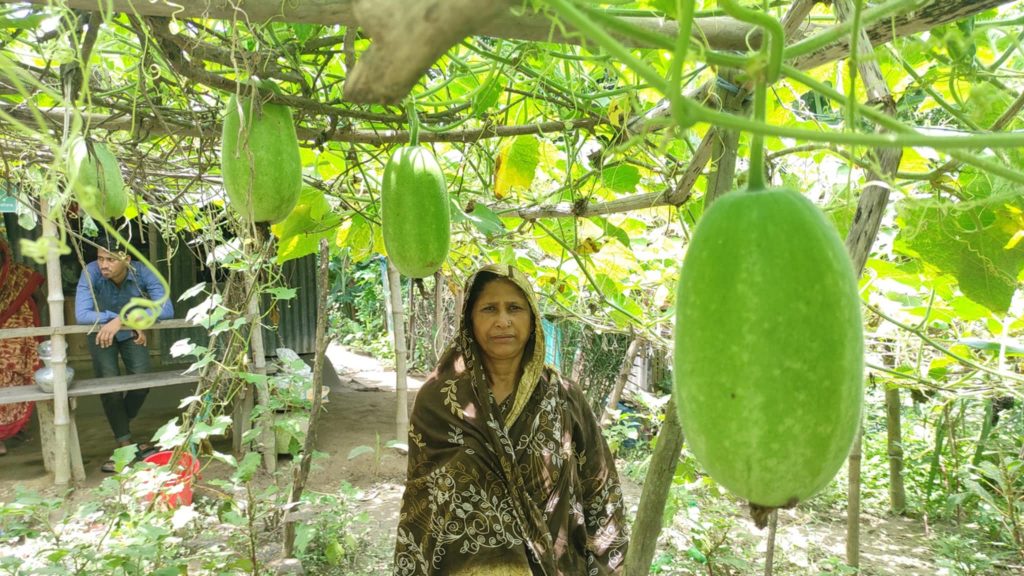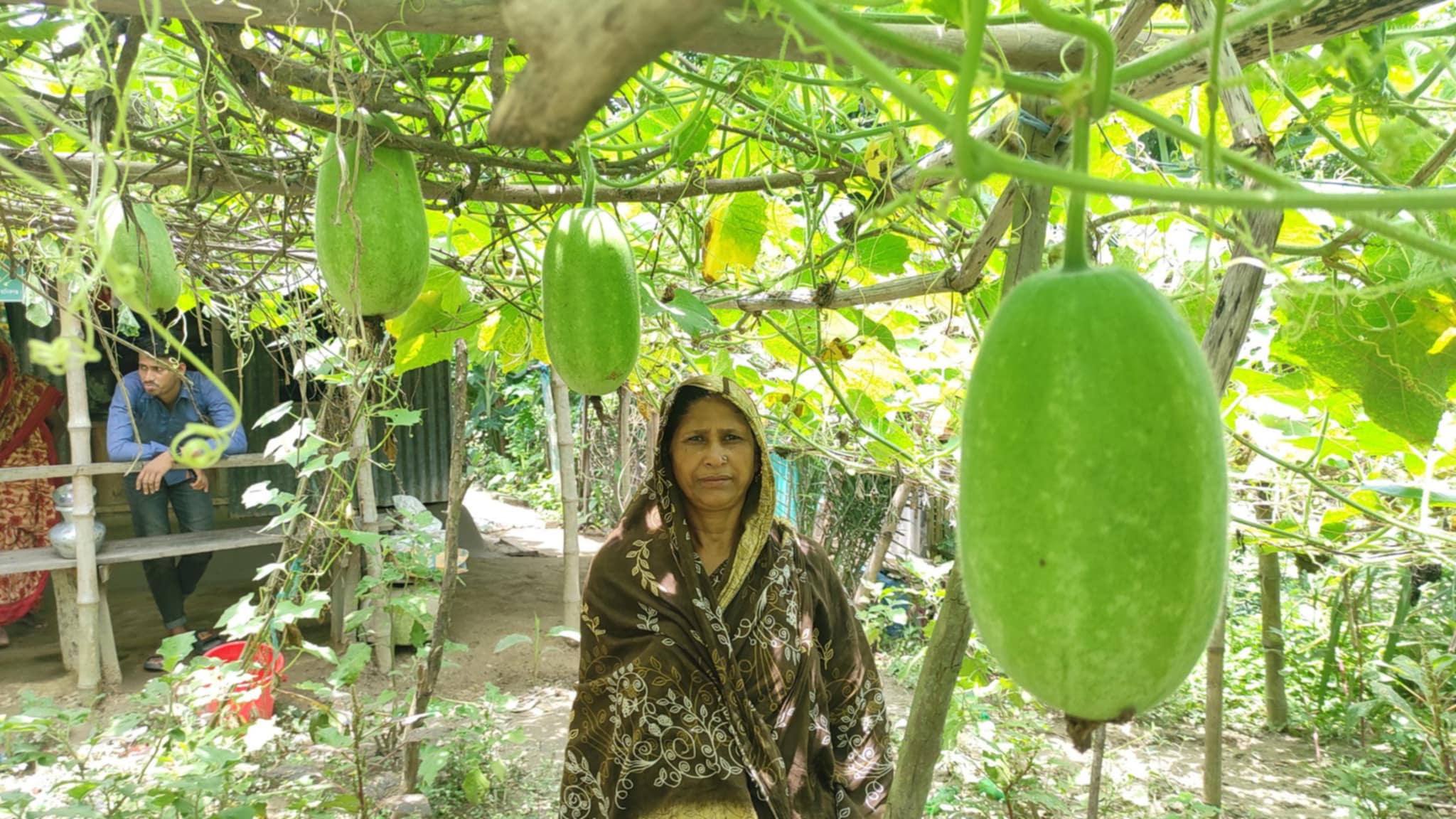By Mukter Hossain from Harirampur, Manikgonj
In the char (river island) regions of Harirampur upazila in Manikganj, a quiet transformation is taking place. Through the ‘Shotobari model houses’’ programme supported by BARCIK, farmers are playing a vital role in producing safe and nutritious food.
Launched in 2024 with just 20 farmers, the program expanded to 50 farmers by 2025. These farmers grow vegetables in their homestead spaces, meeting their families’ needs while selling the surplus in local markets to earn extra income. This approach does not only ensure family nutrition but also reduces market dependency and household expenses.

Over a hundred farmers in the char areas now cultivate vegetables like sponge gourd, ash gourd, sweet pumpkin, eggplant, Malabar spinach, red amaranth, stem amaranth, okra, and bottle gourd in an environment friendly way. Seeing their success, neighboring villagers have also been inspired. They seek advice and establish nutrition gardens to secure food for their own families.
Ranu Begum, a ‘Shotobari’ farmer from Patgram Char, said, “We make compost at home with cow dung and use it in our vegetable plots. We do not use any chemical fertilizers or pesticides. We eat safe food, and seeing us, other farmers are also growing safe vegetables.’ She went on saying, “This year I grew ash gourd on 7 decimals of land in my yard. It cost me a little but benefited me much as we ate from it ourselves, shared with relatives and neighbors, and earn some addititional cashes.”

Through the Shotobari initiative, farmers are rediscovering and cultivating native seed varieties. They are conserving their own seeds, growing diverse vegetables, and reducing reliance on the market. This process is helping them revive and apply their traditional, indigenous knowledge and farming skills.
BARCIK is supporting these farmers with training, exposure visits, seed exchanges, and other forms of assistance to help sustain and expand the initiative.

